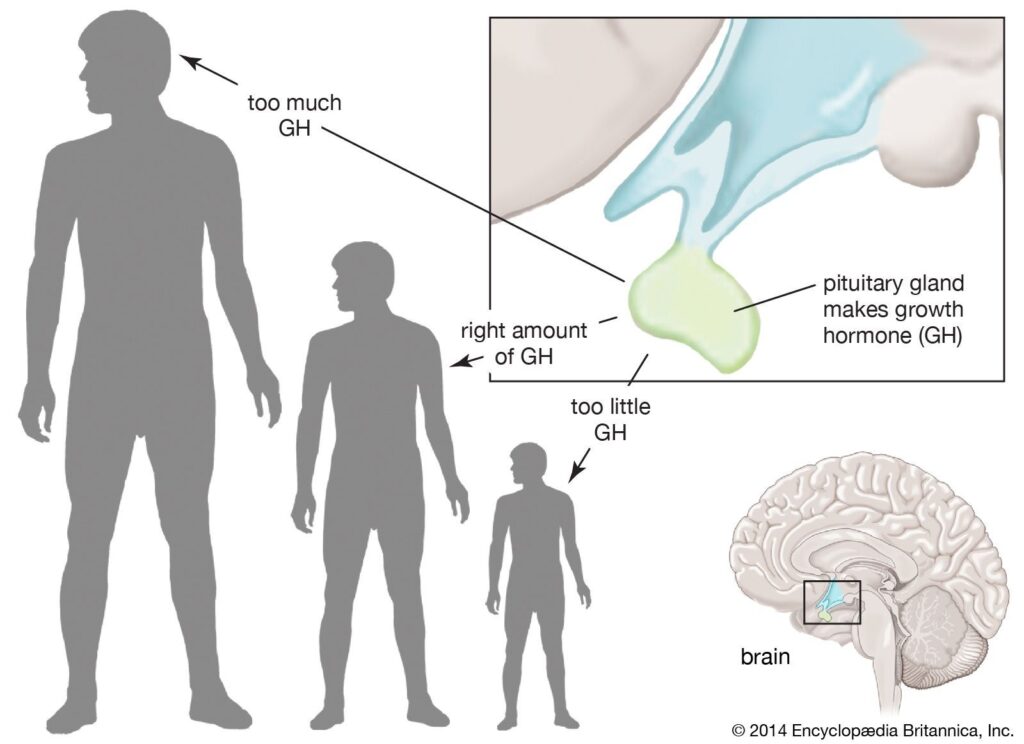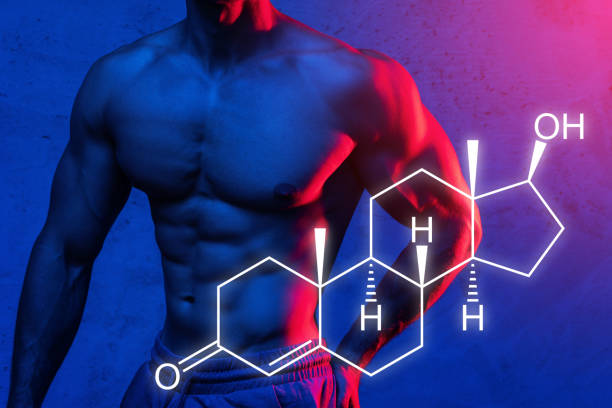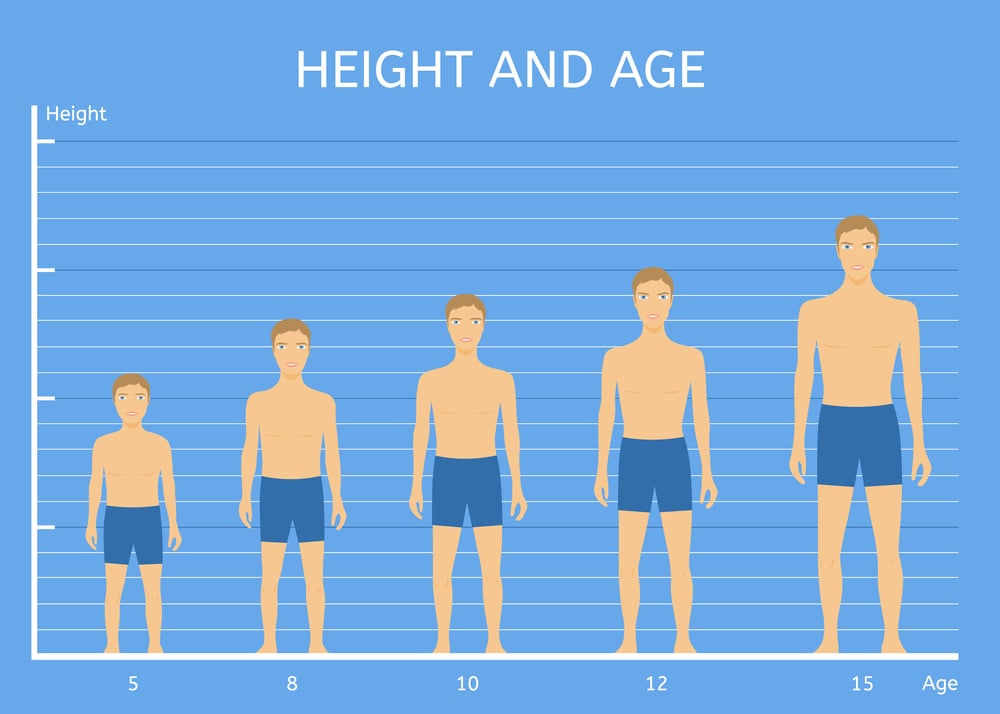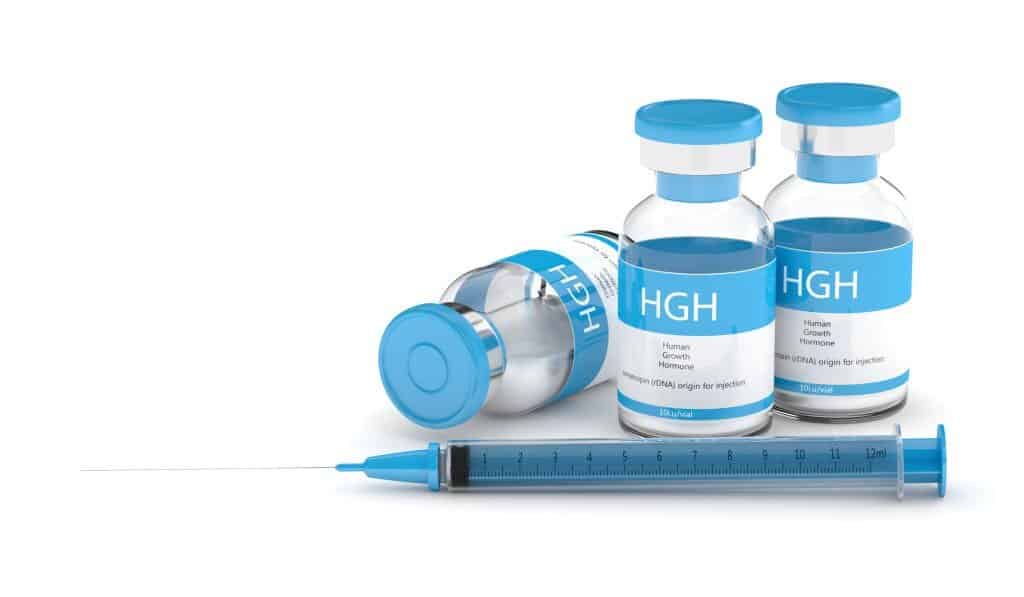
Human Growth Hormone (HGH) is one of the most talked-about substances in the world of health, fitness, and anti-aging. But what exactly is HGH, and why is it so important to our bodies? In this comprehensive guide, we will break down everything you need to know about HGH, from its benefits to its potential risks, and how it impacts our overall well-being.

What is HGH?
HGH stands for Human Growth Hormone, a peptide hormone produced by the pituitary gland in the brain. HGH is essential for growth, cell repair, and metabolism. It plays a significant role in childhood growth, but even as adults, HGH remains vital for maintaining muscle mass, bone density, and overall vitality.
As we age, HGH production naturally declines, which is why HGH therapy has become a popular topic among those looking to slow the aging process, build muscle, and enhance their overall quality of life.
How Does HGH Work?
The primary role of HGH in the body is to stimulate growth and repair of tissues. It influences the production of proteins, which help build muscle tissue and bone mass. HGH also helps regulate the metabolism of fat, contributing to fat loss and improved energy levels.
As HGH levels drop with age, many people seek ways to boost HGH production. Some turn to HGH supplements, while others opt for synthetic HGH injections prescribed by doctors. But before you consider any treatment, it’s important to understand how HGH works in the body and what the risks might be.

Benefits of HGH
The benefits of HGH are wide-ranging and have made it a hot topic in the wellness world. Here are some of the most commonly discussed advantages of HGH:
Anti-Aging: One of the most sought-after benefits of HGH is its potential to slow the aging process. By stimulating collagen production and improving skin elasticity, HGH may help reduce the appearance of wrinkles and fine lines.
Muscle Growth: HGH is essential for muscle growth. By increasing protein synthesis, HGH helps build lean muscle mass, which is why athletes and bodybuilders are particularly interested in its effects.
Fat Loss: HGH plays a crucial role in the breakdown of fats and the conversion of fat into energy. This makes HGH a potential aid for those looking to reduce body fat and improve body composition.
Improved Bone Density: HGH helps maintain bone density, reducing the risk of osteoporosis as we age.
Better Sleep: HGH is released during deep sleep, so higher HGH levels can improve the quality of your sleep, helping you wake up feeling more rested and energized.
Enhanced Recovery: Athletes often use HGH to speed up recovery after intense workouts or injuries. HGH helps repair damaged tissues and accelerates healing.
Improved Mood: Some research suggests that HGH can have a positive effect on mood and mental well-being, helping to alleviate symptoms of depression and anxiety.

How to Boost HGH Naturally
While HGH therapy is a popular option for some, there are natural ways to boost HGH production without resorting to injections or supplements. Here are some methods that can help stimulate your body’s natural HGH production:
Exercise: High-intensity exercise, especially weightlifting and interval training, can significantly increase HGH levels. Short bursts of intense activity can stimulate the pituitary gland to release more HGH.
Sleep: HGH is primarily released during deep sleep, so getting 7-9 hours of quality sleep per night is essential for maintaining optimal HGH levels.
Diet: Eating a diet rich in proteins, healthy fats, and fiber can support HGH production. Foods like lean meats, nuts, seeds, and vegetables are particularly beneficial for hormone balance.
Intermittent Fasting: Some studies have shown that intermittent fasting can increase HGH levels. Fasting for extended periods triggers the body to produce more HGH to preserve muscle mass.
Reducing Sugar Intake: High levels of insulin can suppress HGH production. Reducing your sugar intake can help maintain optimal HGH levels.
Supplementation: Some natural supplements, like arginine, glutamine, and melatonin, may help boost HGH levels. However, the effectiveness of these supplements is still debated.
HGH Therapy: Should You Consider It?
HGH therapy has become increasingly popular, especially among those looking to combat the effects of aging or improve athletic performance. However, it’s essential to approach HGH therapy with caution.
HGH Injections: Prescription HGH injections are the most effective way to increase HGH levels. These injections are typically used for those with HGH deficiencies, but some people use them for anti-aging or performance enhancement. However, HGH injections should only be used under the supervision of a qualified healthcare provider.
HGH Supplements: There are numerous over-the-counter HGH supplements available, but their effectiveness is often questioned. While some products may contain ingredients that support the body’s natural HGH production, they do not contain actual HGH. It’s essential to research any HGH supplement thoroughly before using it.

Risks and Side Effects of HGH
While HGH can offer numerous benefits, it is not without its risks. Some potential side effects of HGH therapy include:
Joint and Muscle Pain: High doses of HGH can lead to joint and muscle discomfort, as well as swelling in the hands and feet.
Carpal Tunnel Syndrome: Some individuals may develop carpal tunnel syndrome, a condition that causes numbness and pain in the hands.
Increased Risk of Diabetes: Excessive HGH levels can lead to insulin resistance, increasing the risk of developing type 2 diabetes.
Heart Issues: Long-term use of HGH may contribute to heart problems, including an enlarged heart.
Cancer Risk: There is some concern that HGH therapy may increase the risk of certain types of cancer, as HGH can stimulate the growth of cells, including cancer cells.
Before starting any form of HGH therapy, it’s essential to consult with a doctor to assess the potential risks and benefits.
Conclusion
HGH is a powerful hormone with the potential to improve various aspects of our health and well-being. From promoting muscle growth and fat loss to enhancing sleep and mood, HGH has become a key player in the wellness industry. However, it’s important to understand both the benefits and the risks of using HGH. Whether you choose to boost your HGH levels naturally or through therapy, make sure to approach it with caution and always consult with a healthcare professional.
In conclusion, HGH is much more than just a buzzword in the world of fitness and anti-aging. It’s a critical hormone that affects everything from growth to metabolism. Understanding how HGH works in the body can help you make informed decisions about whether or not you should pursue treatments to boost your HGH levels. Whatever path you choose, remember that HGH should always be approached with care and knowledge.






